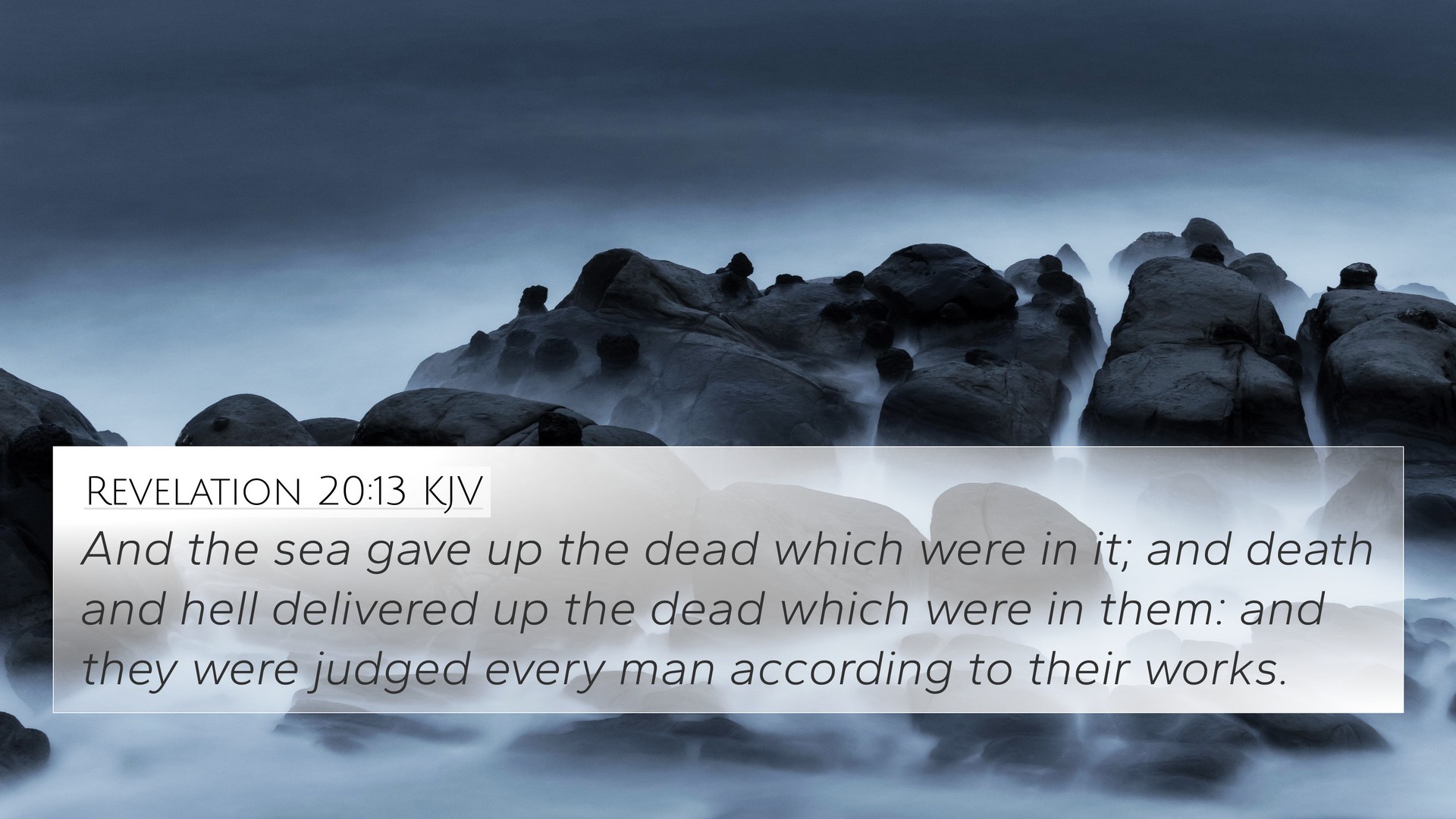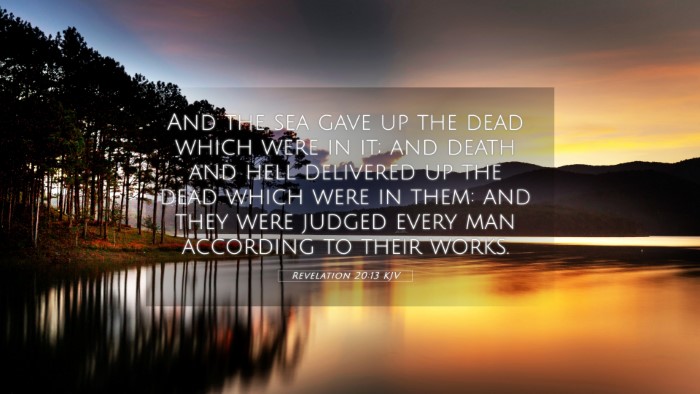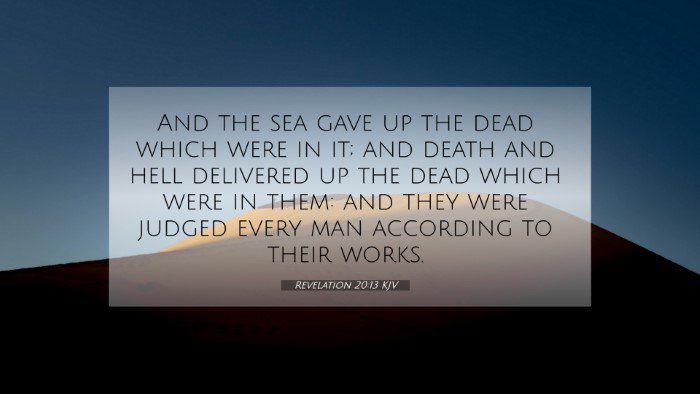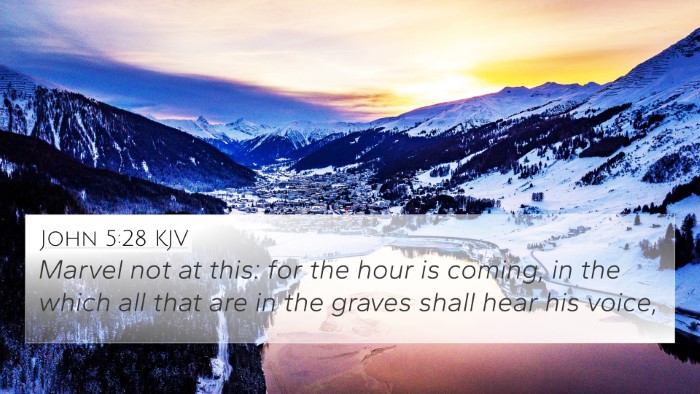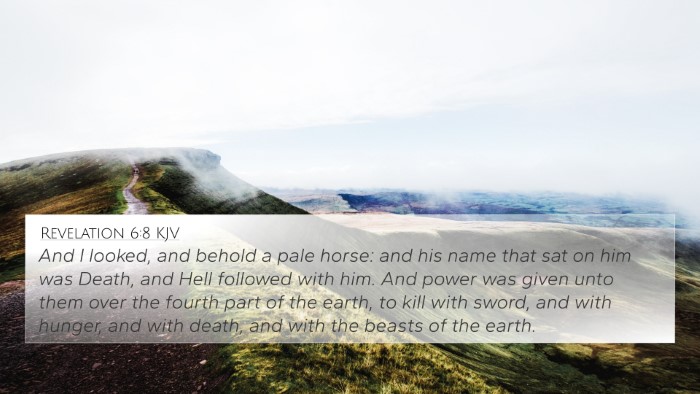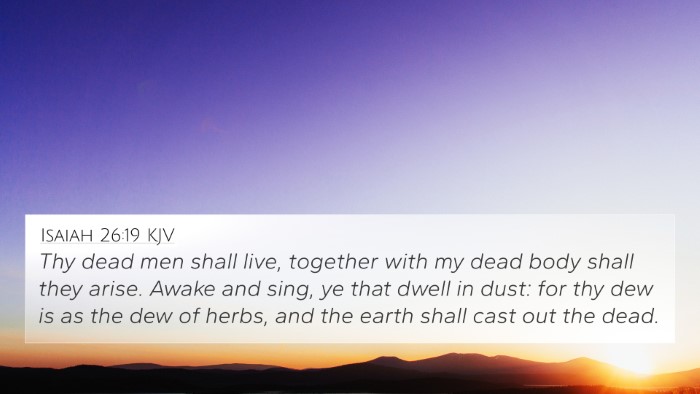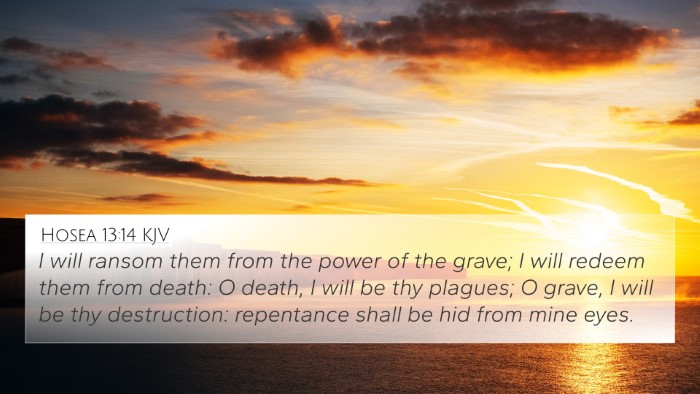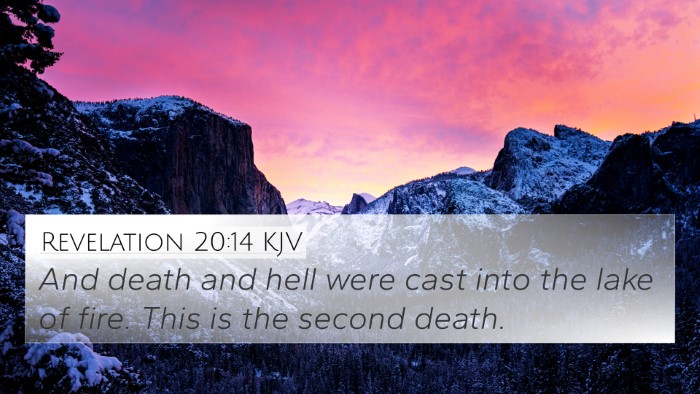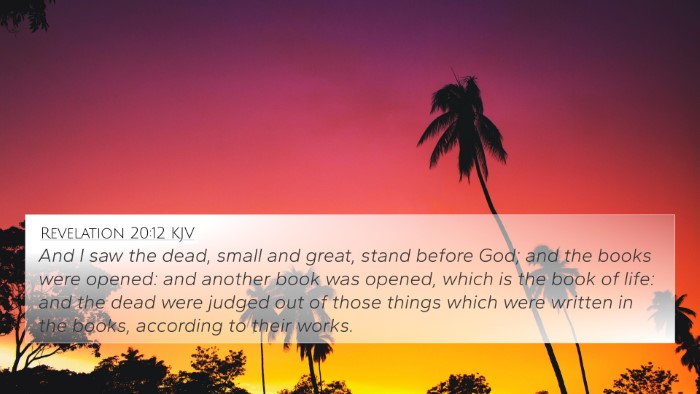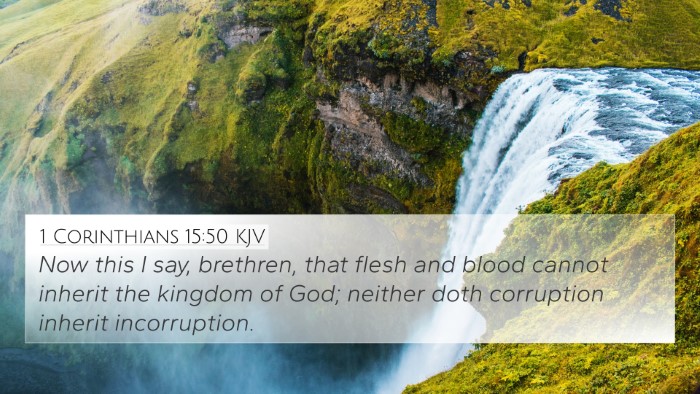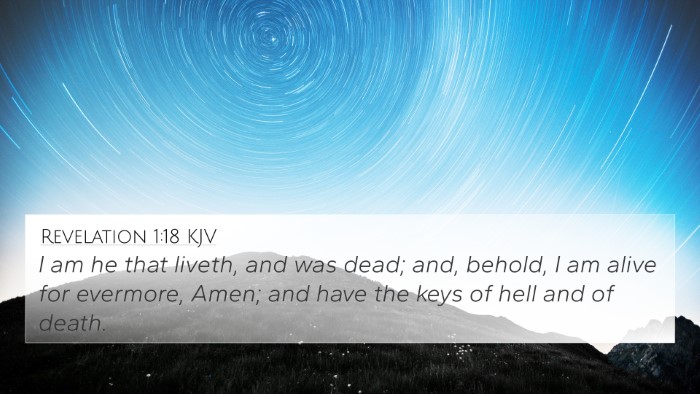Understanding Revelation 20:13
Revelation 20:13 states: "And the sea gave up the dead which were in it; and death and hell delivered up the dead which were in them: and they were judged every man according to their works." This verse depicts the final resurrection and the ultimate judgment before God.
Summary of Insights from Public Domain Commentaries
In this passage from the Book of Revelation, there is a stark portrayal of the resurrection of the dead. The commentary by Matthew Henry emphasizes that this event symbolizes God's ultimate authority over life and death, reiterating the theme of divine justice wherein all are held accountable for their actions.
Albert Barnes draws attention to the significance of both the sea and the grave (often interpreted as ‘hell’). He underscores that all forms of death will cede their dead, indicating no soul can escape God’s judgment. Barnes notes that this serves as a reassurance to believers that even those who have died without hearing the gospel will have the opportunity to be judged fairly.
Adam Clarke offers a reflective perspective on the function of the dead's judgment according to their works. He elaborates that while grace through faith saves believers, their deeds will still be considered in the context of judgment, highlighting the balance between faith and works in the believer’s life.
Thematic Connections Through Cross-References
The connections between this verse and others throughout the Bible enhance our understanding of its meaning. The following Bible cross-references can be deeply analyzed for thematic correlations:
- John 5:28-29 - "Do not marvel at this; for an hour is coming when all who are in the tombs will hear His voice and come out…." This passage echoes the resurrection theme present in Revelation 20:13.
- Daniel 12:2 - "And many of those who sleep in the dust of the earth shall awake, some to everlasting life, and some to shame and everlasting contempt." This verse reinforces the concept of resurrection and judgment.
- Romans 14:10-12 - "For we will all stand before the judgment seat of God..." Paul's writing highlights the inevitable accountability of each individual before God.
- 2 Corinthians 5:10 - "For we must all appear before the judgment seat of Christ, so that each one may receive what is due for what he has done in the body, whether good or evil." This resonates with the judgment aspect of Revelation 20:13.
- Matthew 25:31-46 - The parable of the sheep and the goats illustrates the separation and judgment based on one’s works.
- Matthew 12:36 - "I tell you, on the day of judgment people will give account for every careless word they speak." This verse underscores the importance of our words and actions leading to judgment.
- Acts 24:15 - "having a hope in God, which these men themselves accept, that there will be a resurrection of both the just and the unjust." This alludes to the resurrection noted in Revelation.
Conclusion
Revelation 20:13 communicates powerful truths regarding resurrection and divine judgment, encapsulating the finality of life's decisions. It invites readers to reflect on their own lives and consider the implications of divine accountability. The inter-Biblical dialogue surrounding this topic offers profound insights through understandable connections among various scriptures.
Related Keywords for Further Study
For those interested in deeper study, the following terms may assist in your exploration of these themes:
- Bible verse cross-references
- Connections between Bible verses
- Linking Bible scriptures
- Comparative Bible verse analysis
- Bible verses that relate to each other
- Cross-referencing Biblical texts
- Thematic Bible verse connections
- Bible verse parallels
- Scriptural cross-referencing
- Inter-Biblical dialogue
- Tools for Bible cross-referencing
- Bible concordance
